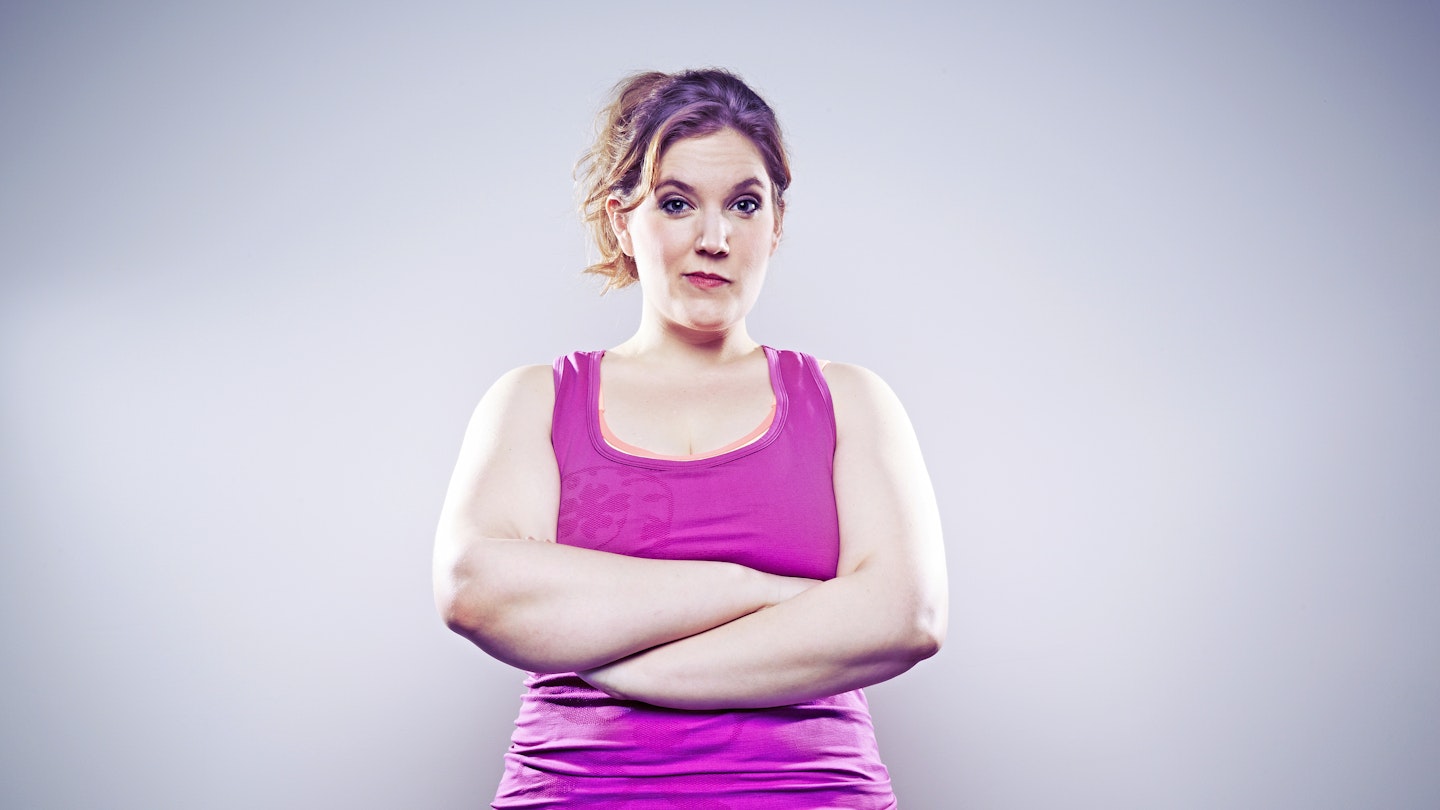If you’re eating well and exercising regularly, it seems obvious that you should lose any extra pounds you’re carrying. But if that’s not happening, there may be a hidden cause.
Here are nine reasons why you might be struggling to shift your weight…
Your age
As we age, hormonal changes and a reduction in muscle mass mean our metabolism slows down, so we burn fewer calories. But our eating habits often stay the same.
James Davis from The Midlife Mentors says: ‘We also become more insulin-resistant, meaning we’re less able to process carbohydrate foods as energy effectively. The good news? Weight training is a great way to offset these changes.’
Hidden calories
How many times have you squeezed mayo on to a sandwich or added sugar to a bowl of cereal and thought nothing of it? Even if you think you’re not eating much, it’s easy to underestimate portion sizes, or to eat ‘hidden’ calories.
Sarah Coe, a nutrition scientist from the British Nutrition Foundation, says: ‘Some drinks may be higher in calories than you’d expect, particularly sugary soft drinks, fruit juices or large, milky coffees.’
For example, a 250ml glass of orange juice contains 120 calories, while a large latte from Starbucks can contain up to 190 calories.
You’re stressed
When your body is under stress, it releases a hormone called cortisol, known as the stress hormone. This rise in cortisol causes blood sugar levels to rise.
James Davis says: ‘One effect of consistently raised cortisol is an increased tendency to hold on to body fat, particularly in the abdomen, hips and thighs.’
Lack of sleep
Not getting enough sleep can cause all kinds of problems, but did you know it can also make you overweight?
Research from the University of Birmingham shows that people who regularly get less than eight hours per night are more likely to be overweight.
This is because when we don’t get enough sleep, our bodies produce the hormone ghrelin, known as the hunger hormone, which stimulates appetite.
Other studies have shown that, on average, people who get less than seven hours’ sleep per night, eat around 300 extra calories the next day.
A thyroid imbalance
Your thyroid gland in your neck releases hormones into the body, which regulate metabolism.
When your body isn’t producing enough of these hormones, it means you have an underactive thyroid, and you’re prone to weight gain.
A simple blood test can diagnose it, but if you’re unsure, check for other symptoms, such as always feeling cold, tiredness, dry skin and brittle nails, depression, memory and concentration problems, muscle cramps, aches and weakness, constipation, and a puffy face.
If you have any of these, plus weight gain, see your GP.
Medication
Some medications make it impossible to lose weight and can even make you gain weight.
They include steroids and beta blockers, and some diabetes and antidepressant medications. If concerned, speak to your GP about this.
You regularly skip meals
It might sound like a good way to cut down on calories, but restricting your calorie intake long-term can mean your body adapts, making it more difficult to lose weight.
Sarah Coe says: ‘Skipping meals can make you feel tired and lacking in energy, which means you’re more likely to snack on foods that are high in fat and sugar, leading to weight gain. Skipping meals may also put you at risk of missing out on essential nutrients.’
You have poor gut flora
Your gut is known as your second brain. Not only does your gut microbiome influence mood and emotions, it can also affect your metabolism and potential for storing fat as well.
James Davis says: ‘Eat plenty of natural fibre and prebiotic and probiotic food sources to ensure a healthy gut.’
You’re not eating enough protein
If you feel starving hungry while trying to lose weight, you’re much more likely to give up. But if you up your protein intake, the chances are those hunger pangs won’t strike.
Sarah Coe says: ‘Diets high in protein may help improve satiety and help with appetite control. Include foods such as lean meat or poultry, meat alternatives, fish, eggs, nuts, beans and pulses such as lentils and chickpeas.’
Edited by Clare Swatman
